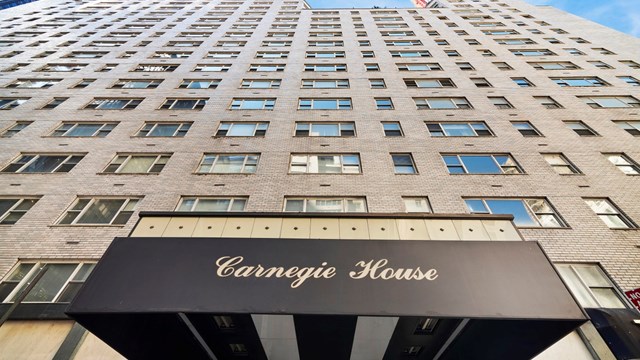A good redesign of an outdated, obsolete, or run-down common area in your co-op or condo building can be a thing of beauty. Spiffing up a lobby, hallway or elevator can not only inspire residents to take more pride in where they live, but can help maximize property values as well.
Regardless of the benefits however, undertaking any design project presents a certain amount of risk—including the possibility of going over-budget. Serious overruns can lead to a special assessment; something that will likely cancel out any goodwill the gorgeous new common area might have generated among the building residents. And if financial headaches weren’t enough, there’s also the fact that if a project goes over budget, chances are it’s taking longer than expected to complete as well, and likely inconveniencing residents on top of costing them money.
Horror stories abound of contractors who take too long to get a job done, come up with surprise costs in the middle of a project, or who simply do shoddy work. Any of those scenarios means money is being wasted. But there are plenty of good contractors out there, and plenty of ways to keep on top of a project underway in your building. With some due diligence, your board/mana- gement team can hire a competent contractor at a reasonable rate, and take measures to help control costs and get your project done on time.
Do We Have a Bidder?
According to Bernd Allen, a partner with Manhattan-based real estate law firm of Allen Morris Troisi & Simon LLP, design projects start with plans and specifications from an architect. The plans are then sent out for bids (usually three), and then board members choose the most attractive bid and hire that contractor.
But what constitutes the “best” bid? There are no hard and fast rules, but Allen says a common practice is to dismiss the lowest and highest bids—though he adds that even that rule “isn’t cast in stone.” Getting multiple bids can help give you an idea of what’s reasonable, particularly if the highest one seems unusually high or the lowest one looks too good to be true. (Hint: it probably is.)
“The best way to [stay within your budget] is obviously to get a firm bid from a contractor and hold them to it,” Allen says. “The problem with those firm bids is that the minute you make any changes to the contract documents—any changes to the specifications—the firm bid goes out the window. And it’s impossible to determine in advance, with any specificity, the amount of work that has to be done. So there’s always something that comes up.”
If for example, removing old wallpaper from a wall becomes more difficult than originally anticipated, either because of the wallpaper or the surface, the contractor may charge more because that likely wouldn’t be specified in the contract. Or if a wall behind the wallpaper is damaged, that’s also going to make for additional work not accounted for in the contract.
“In doing lobbies, however, you should be able to get pretty good specifications, and maybe then you can hold the contractor to the price,” Allen says. He adds that repairs to lobbies can be a nuisance for residents, so “what you’d like to get is a firm date for completions and—if you can possibly get it [added to the contract]—get some sort of a penalty if the contractor goes over it.”
Choosing the Right Contractor
Your managing agent will do a lot of legwork in terms of finding contractors and getting bids for a project, but it’s the board members who ultimately make the decision as to who gets the job. As such, the board has to be deeply involved in the decision-making process.
“People on boards have to be careful who they pick as vendors,” says Iris Shorin, a realtor with JC DeNiro & Associates in Manhattan. Shorin has lived in an old and prestigious co-op on Fifth Avenue for more than 30 years, and was a board member for five years. “Don’t get complacent. You have to make sure you’re getting two or three bids, and that you get to know the supplier or know the vendor or know the contractor.”
Also important is gaining a full understanding of what a contractor is doing and being aware of the work that he or she does.
“You have to be very careful that you get accurate bills for work done, that the bills aren’t padded, that they didn’t send someone to do work, but nobody checked the bill,” Shorin says. “You could get a bill for four hours of work when the person was only there for half an hour.”
Another possibility Shorin notes is unauthorized substitutions for building materials. For example, it’s not unheard of for a building’s design committee or interior professional to choose a specific—sometimes luxury—tile or marble from a well-known supplier, only to have their contractor buy a cheap knockoff and pocket the price difference. This isn’t to suggest that you should be confrontational or skeptical of everything your contractor tells you. It’s just an indication of how much there is to stay on top of when working with a contractor.
“Reliability, reliability, reliability,” Shorin says. “Just like location, location, location. Check your resources. Make sure you’ve interviewed whomever you pick, and that you’ve talked to board members [from other buildings] who have used them.”
Do Your Homework
Even if you’re confident that you’ve hired a contractor who will provide quality work at a good price that doesn’t mean your work is done. Other factors that can impact the bottom line of any project are safety, insurance and proper licenses. Following up on a company’s references and other paperwork is part of your due diligence as a board, and can save you money and hassle in the long run.
“When you finally make your determination as to a particular contractor you want to use, you obviously should get references,” Allen says. “You should also check with the attorney general’s office, the Department of Consumer Affairs and the Better Business Bureau to see if there are any complaints.
“Make sure the contractor is licensed, and that he or she has the proper amount of insurance,” Allen continues. “Make sure to get an insurance certificate—and you’ll want them to sign some waivers and liens so that they don’t file a lien against the building.”
How about Repeat Business?
Let’s say you had a lobby redesign done last year and had a great experience with the contractor. He or she charged you a fair price and got the job done by the agreed-upon date. Now it’s time to get a gym or other common room spruced up, so why not just call the same contractor and give them the new job?
“Even if he’s done work with you before, just because he was great one time, doesn’t mean he will be again,” Shorin says, adding that the contractor’s rates might have gone up disproportionately to others, or he or she may have new employees who aren’t as good as the first crew who worked on your lobby. Licenses might not have been renewed or complaints might have been lodged against the company recently.
Property managers with multiple clients have good working relationships with contractors and vendors, but that doesn’t mean your board should just simply take your manager’s recommendations.
“The board shouldn’t just say, ‘Well this is who the manager refers, so let’s use them,’” Shorin says. “If it’s a small project, that might be one thing, but renovations these days are incredibly costly.” And they can be made much more so if a board doesn’t ask questions, check references, and take a proactive approach to the bidding and hiring process.
Protect Yourself
So you’ve done everything you can to ensure you’ve hired an honest contractor who does quality work. You still have to stay on top of things. Managers and board members should closely follow the project as it progresses to make sure it isn’t intruding on the lives of residents more than is absolutely necessary.
Allen says one of the best ways to keep an eye on any work being done is to hire a professional project manager. This person could be trained as an architect, an engineer, or other professional.
“An inspection company, an engineer, an architect, can supervise the job,” he says. “Sometimes, like with lobby restoration, it’s mostly decorative. Certainly the building manager can do that—they should make visits to the building on a regular basis while the work is going on to make sure it’s being done properly. For a more complex kind of job, you might want a professional to make sure walls are insulated properly, that the proper amount of studs are being used, things of that nature.”
“You get what you inspect—not what you expect,” says Michael Cervelli of Cervelli Management Corporation in North Bergen, New Jersey. “If you expect someone to go and do the job, but you’re not going to be there watching, in one form or another, you don’t know what you’re getting.”
According to Allen, another way to protect your building is to pay for the job in increments, and offer a bonus for finishing the job ahead of schedule.
Cervelli agrees and advises using your budget to your advantage. If you have $20,000 set aside for a job and you go with a bid that costs $18,500, offer a bonus if they get it done earlier.
“You say, ‘If you do the job in 40 days [instead of 45], we’ll give you $500 more,’” he says. “If you do it on time, then you get paid. If you do it in 60 days, 15 days late, then we’re going to penalize you.”
And if things are bad enough—if your contractor damages your building, or runs weeks behind schedule, or uses substandard materials not authorized in his contract—you may have to call your attorney.
“Hopefully, you don’t get into that situation because you did your due diligence up front,” says Allen, “but that’s when you have to call the building’s lawyer.”
But the professionals all agree that it pays to try and be reasonable. If there’s a good reason for a delay, take that into consideration before bringing out the big guns and docking a contractor’s pay or putting in a call to your attorney.
“If it’s reasonable, then it’s reasonable,” Cervelli says. “If during Hurricane Katrina, every 2-x-4 has been re-routed to the Gulf Coast, what are you going to do? Or if they’re doing exterior work and all of a sudden it rains for a week, what are you going to do?”
In other words, the goal isn’t to be difficult—it’s to protect the investment of your building’s shareholders or unit owners. By investing adequate time and diligence in hiring your contractor, and committing to oversee your project through its completion, your board and manager can keep projects on-schedule, make sure they’re done properly, and save time—and more importantly, money—in the long run.
Anthony Stoeckert is a freelance writer and a frequent contributor toThe Cooperator.







Leave a Comment